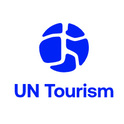Un Agencies Partner For Guide To Help Women In Tourism Recover From Crisis
As the sector enters the second year of an unprecedented crisis, the impact this has had on women in tourism has been made clear. According to the World Tourism Organization (UNWTO), the pandemic, and the unprecedented drop in international tourist arrivals, risks rolling back progress made towards achieving gender equality and efforts to empower women and girls.
UNWTO is marking International Women's Day 2021 with the release of our Inclusive Recovery Guide for women in tourism, compiled in collaboration with UN Women.
UNWTO data shows that women make up the majority of the tourism workforce (54%). Women in tourism are also often concentrated in low-skilled or informal work. This means that they are feeling the economic shock caused by the crisis more acutely and quicker than their male counterparts. In many cases, they are cut off from the social and healthcare protections that are so vital in a global pandemic.
Crisis "has a woman's face"
The Secretary-General of the United Nations António Guterres says, "As the world marks International Women's Day in the midst of a global pandemic, one stark fact is clear: the COVID-19 crisis has a woman's face." UNWTO Secretary-General Zurab Pololikashvili adds, "Tourism is a proven driver of equality and opportunity. This unprecedented crisis has hit our sector's women fast and hard, which is why gender equality and empowerment must be centre stage as we work together to restart tourist and accelerate recovery."
Recommendations for inclusive recovery
Almost one year on since the pandemic was officially declared, the negative impact it is having on women and girls has become devastatingly clear. This increase in women's economic and social insecurity combined with the observed rise in unpaid care work and domestic violence have meant that women in tourism have been disproportionately affected by the devastating effects of the pandemic on the sector.
The Inclusive Recovery Guide provides recommendations to policymakers, businesses and civil society actors in tourism for designing gender-responsive measures in response to the ongoing pandemic.
About UN Tourism
The World Tourism Organization (UN Tourism) is the United Nations agency responsible for the promotion of responsible, sustainable and universally accessible tourism.
As the leading international organization in the field of tourism, UN Tourism promotes tourism as a driver of economic growth, inclusive development and environmental sustainability and offers leadership and support to the sector in advancing knowledge and tourism policies worldwide.
Our Priorities
Mainstreaming tourism in the global agenda: Advocating the value of tourism as a driver of socio-economic growth and development, its inclusion as a priority in national and international policies and the need to create a level playing field for the sector to develop and prosper.
Promoting sustainable tourism development: Supporting sustainable tourism policies and practices: policies which make optimal use of environmental resources, respect the socio-cultural authenticity of host communities and provide socio-economic benefits for all.
Fostering knowledge, education and capacity building: Supporting countries to assess and address their needs in education and training, as well as providing networks for knowledge creation and exchange.
Improving tourism competitiveness: Improving UN Tourism Members' competitiveness through knowledge creation and exchange, human resources development and the promotion of excellence in areas such as policy planning, statistics and market trends, sustainable tourism development, marketing and promotion, product development and risk and crisis management.
Advancing tourism's contribution to poverty reduction and development: Maximizing the contribution of tourism to poverty reduction and achieving the SDGs by making tourism work as a tool for development and promoting the inclusion of tourism in the development agenda.
Building partnerships: Engaging with the private sector, regional and local tourism organizations, academia and research institutions, civil society and the UN system to build a more sustainable, responsible and competitive tourism sector.
Our Structure
Members: An intergovernmental organization, UN Tourism has 160 Member States, 6 Associate Members, 2 Observers and over 500 Affiliate Members.
Organs: The General Assembly is the supreme organ of the Organization. The Executive Council take all measures, in consultation with the Secretary-General, for the implementation of the decisions and recommendations of the General Assembly and reports to the Assembly.
Secretariat: UN Tourism headquarters are based in Madrid, Spain. The Secretariat is led by the Secretary-General and organized into departments covering issues such as sustainability, education, tourism trends and marketing, sustainable development, statistics and the Tourism Satellite Account (TSA), destination management, ethics and risk and crisis management. The Technical Cooperation and Silk Road Department carries out development projects in over 100 countries worldwide, while the Regional Departments for Africa, the Americas, Asia and the Pacific, Europe and the Middle East serve as the link between UN Tourism and its 160 Member States. The Affiliate Members Department represents UN Tourism's 500 plus Affiliate members.
